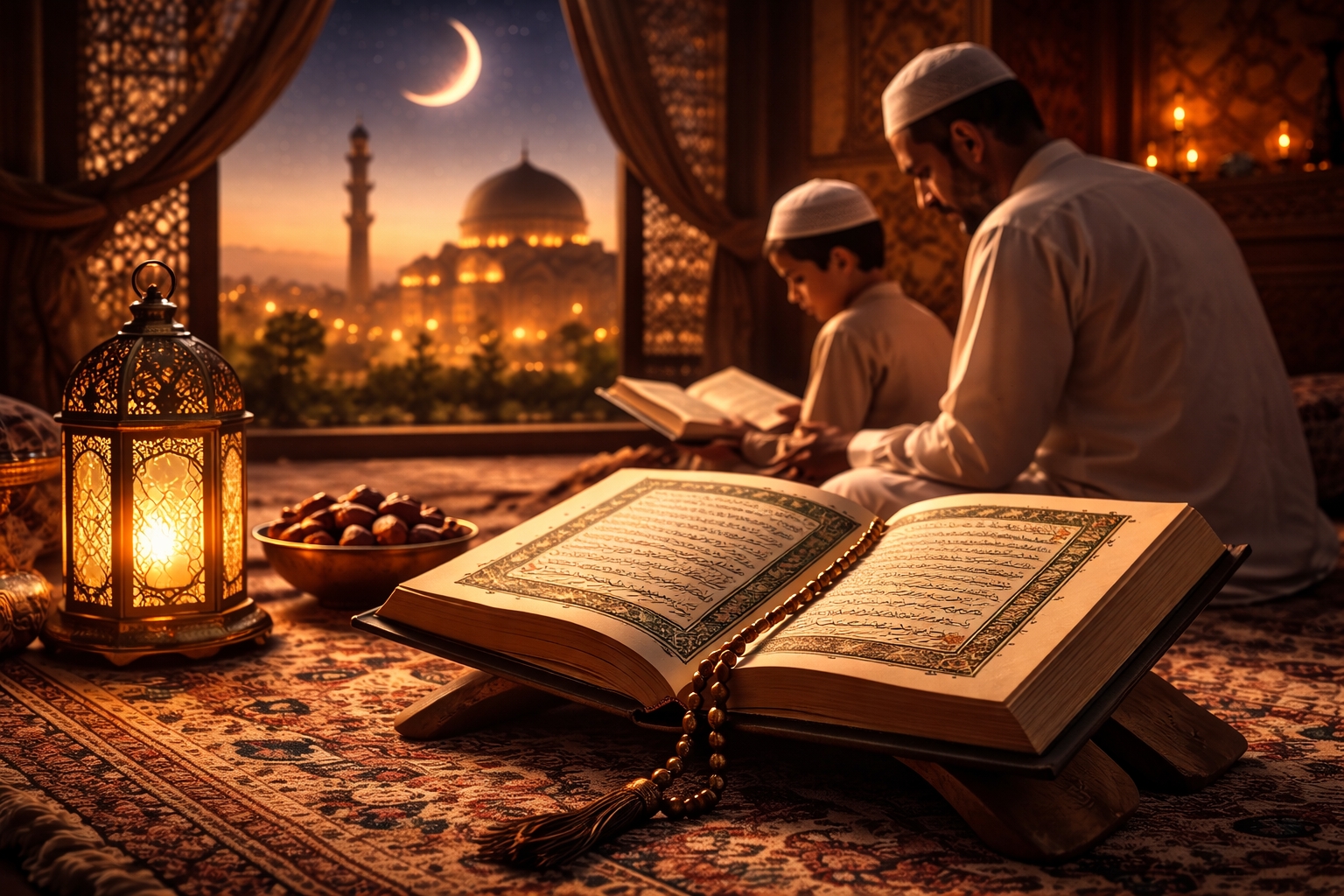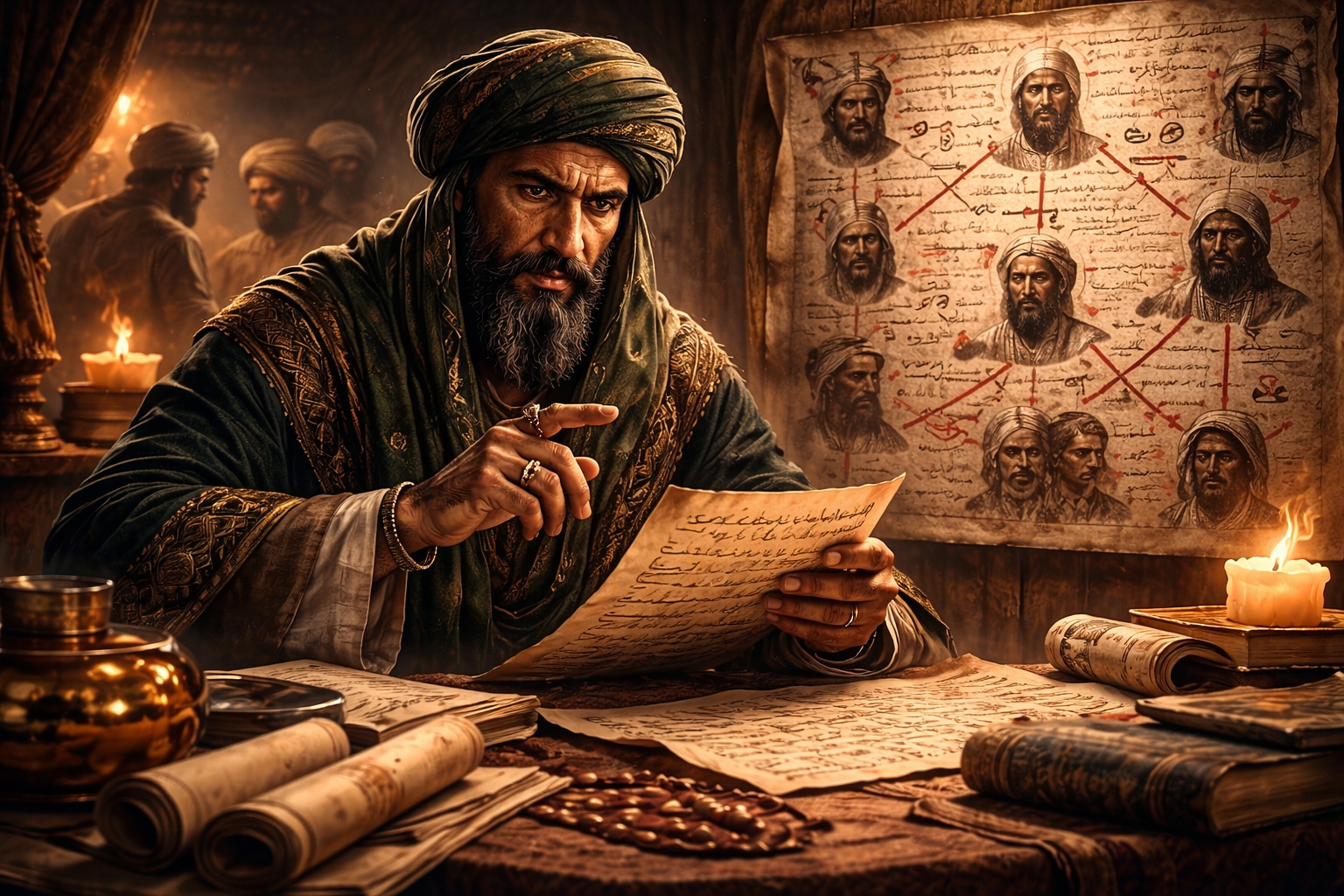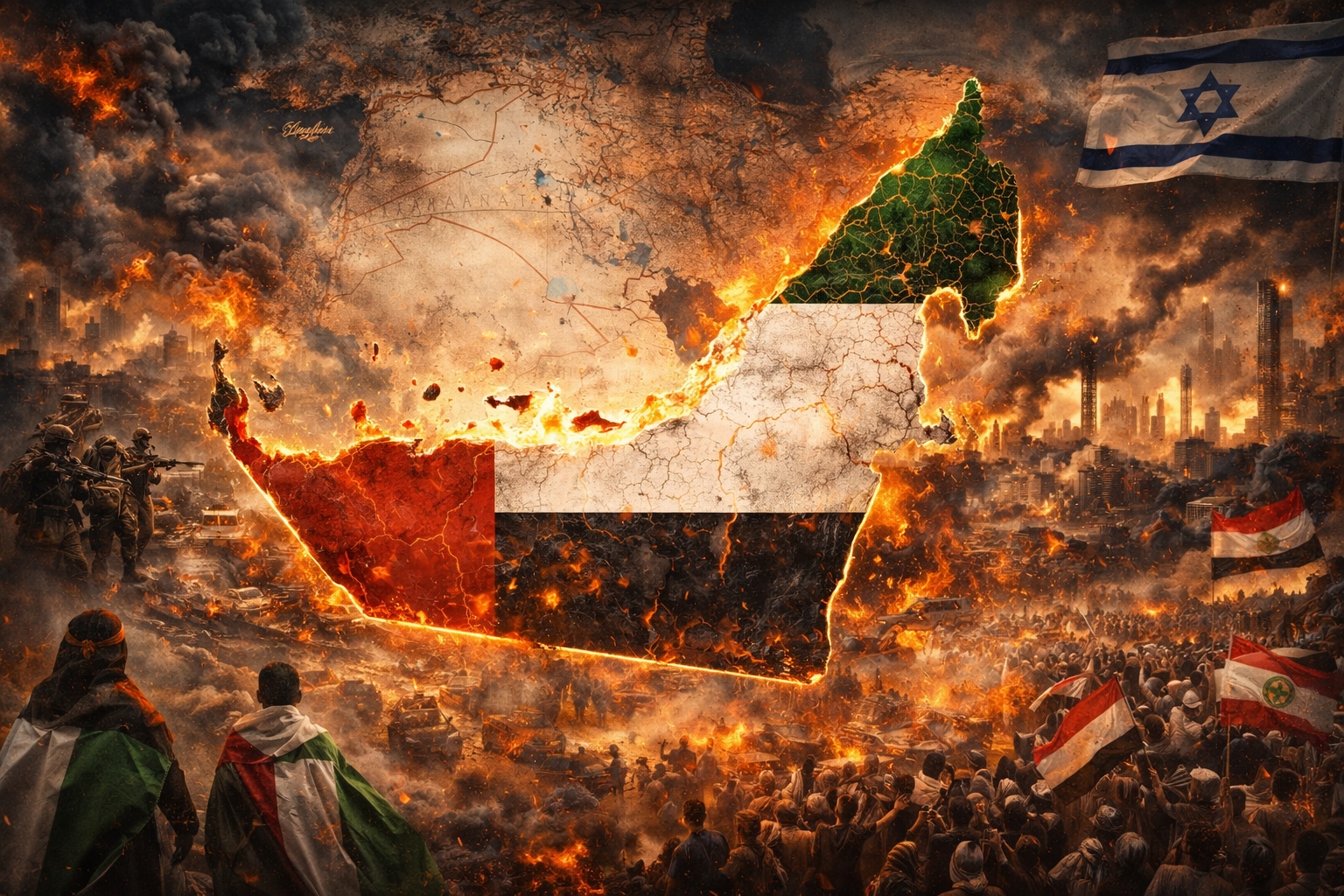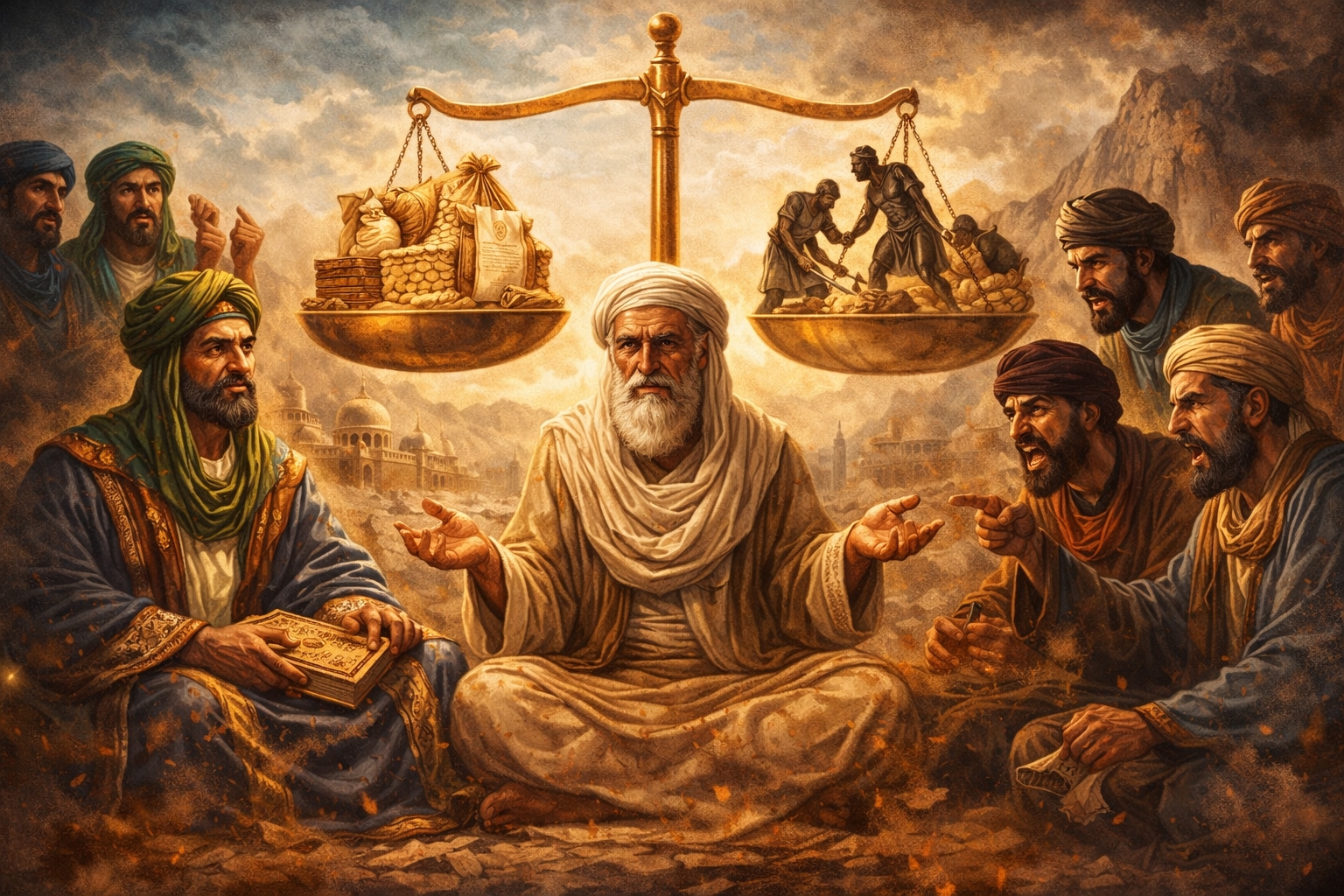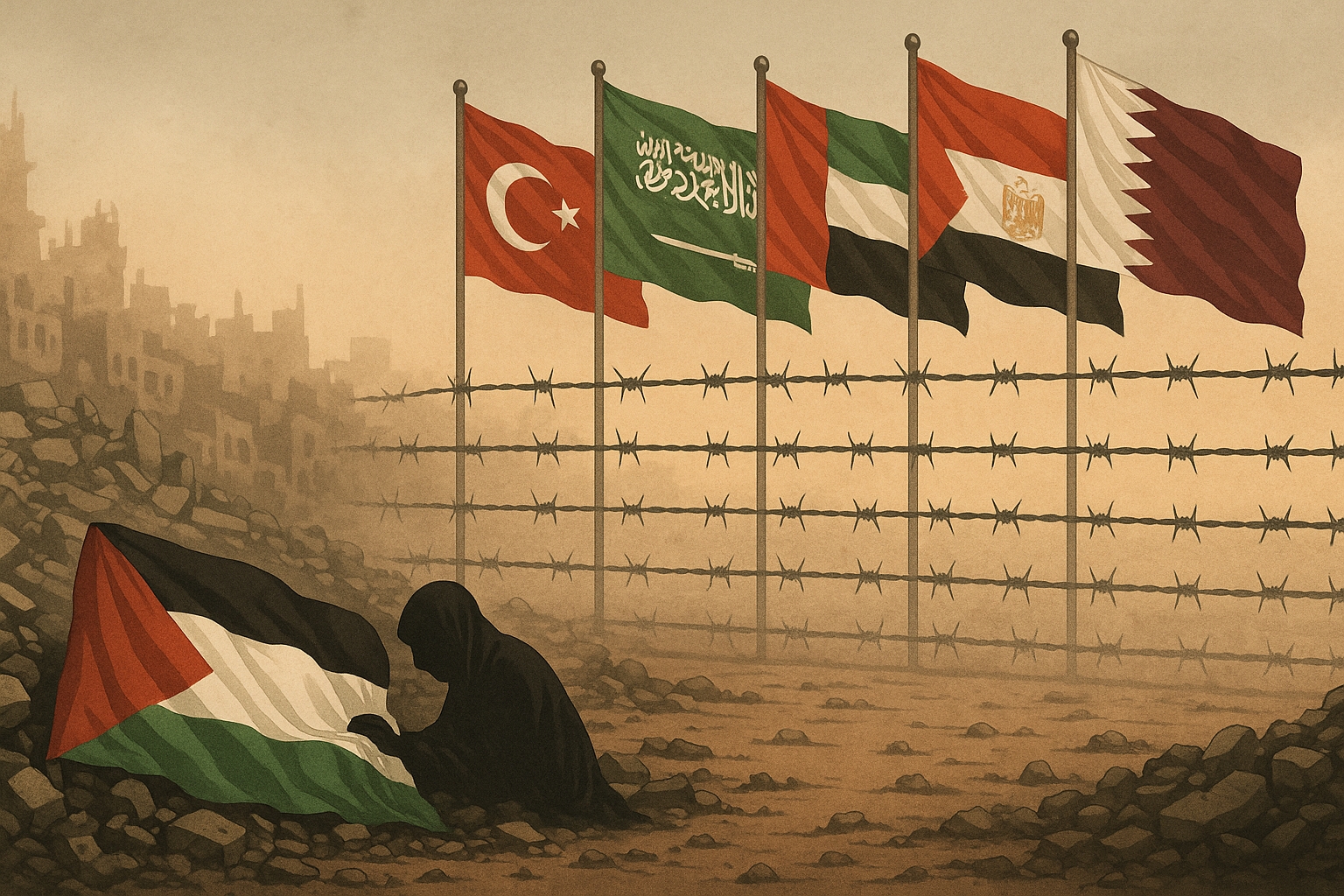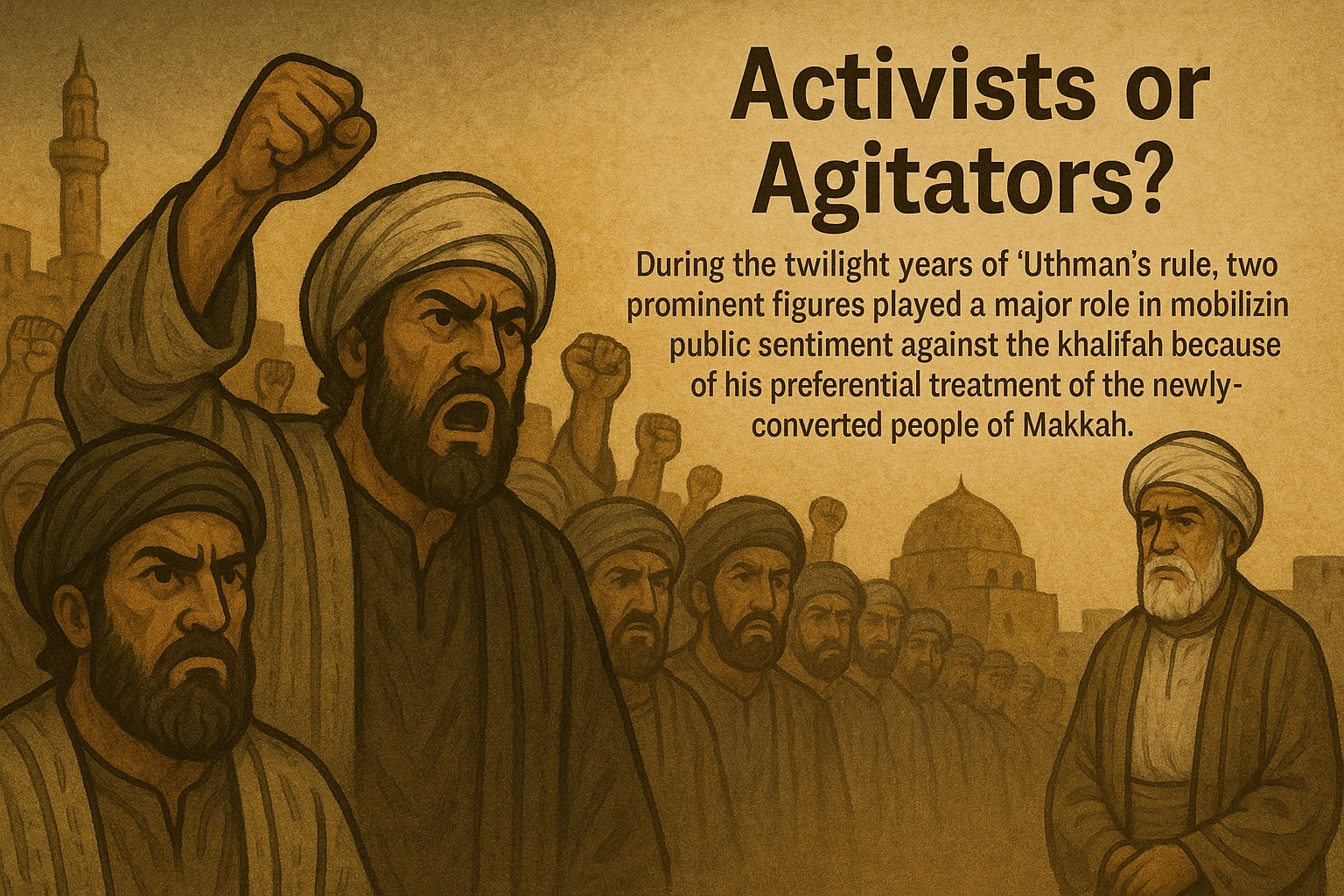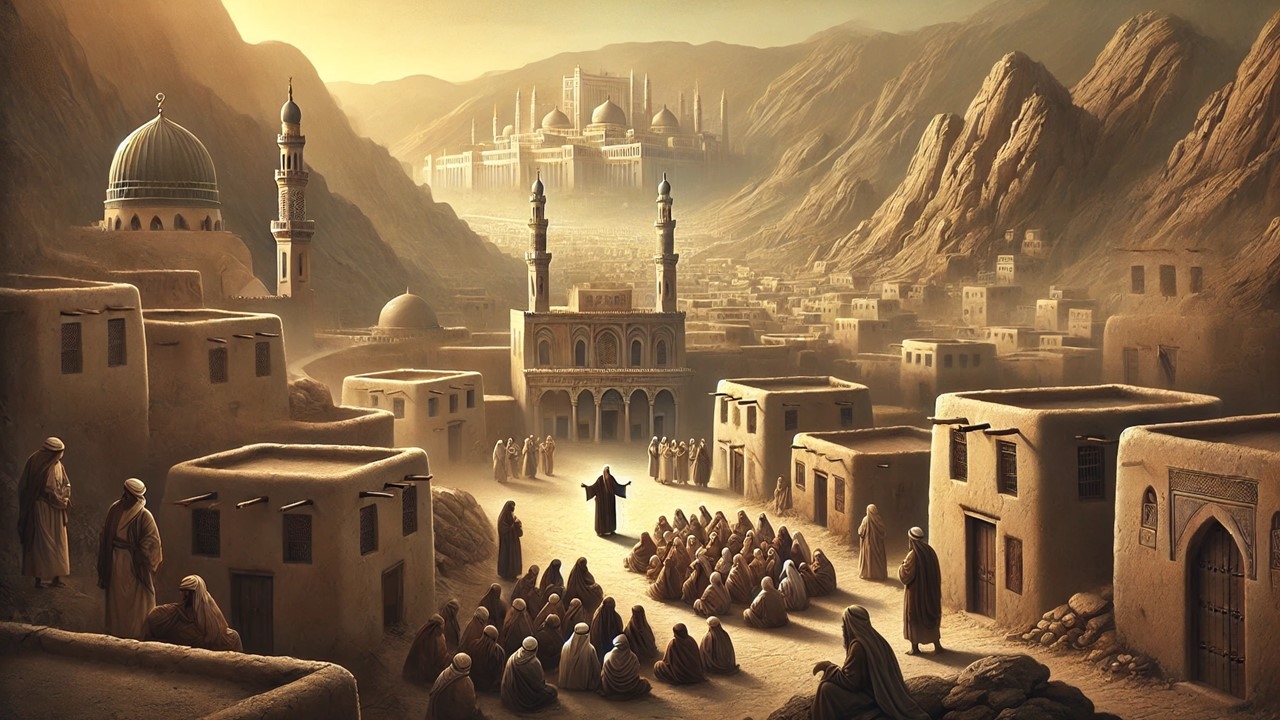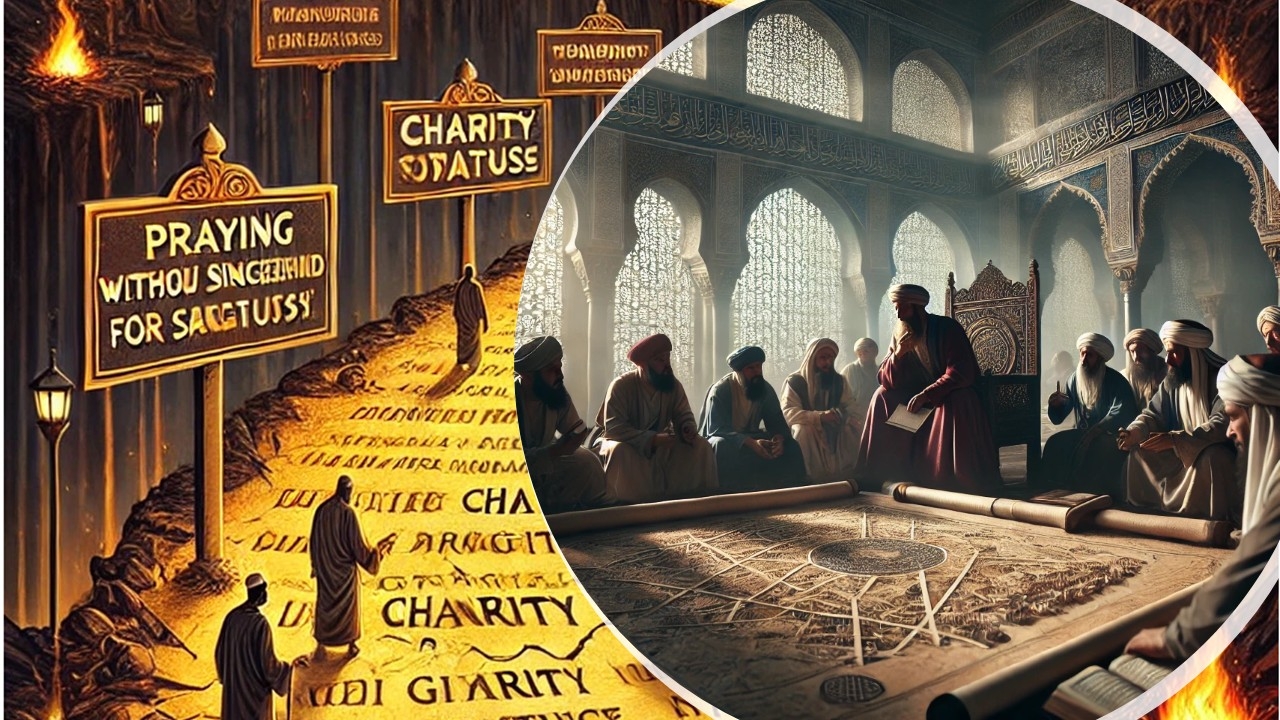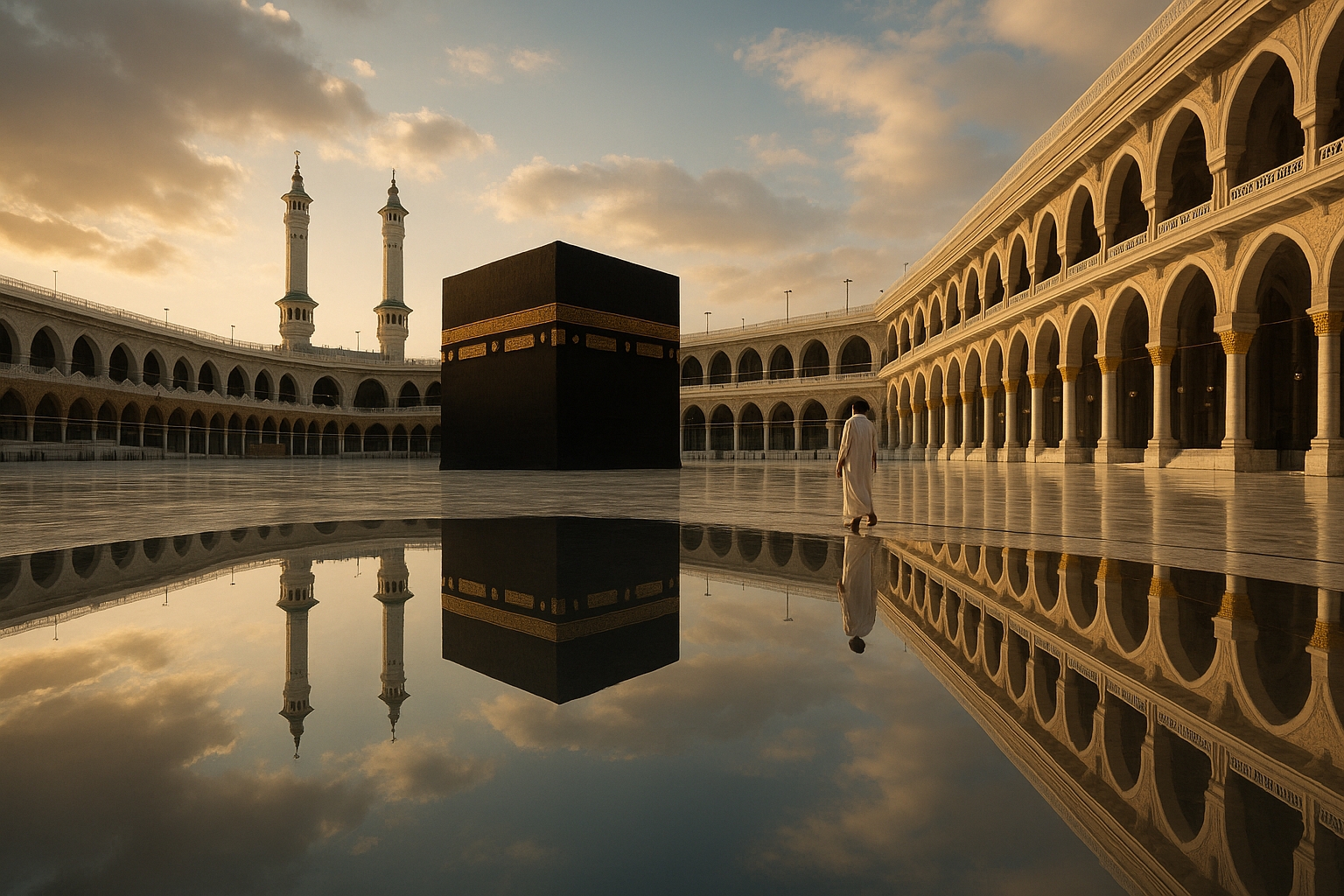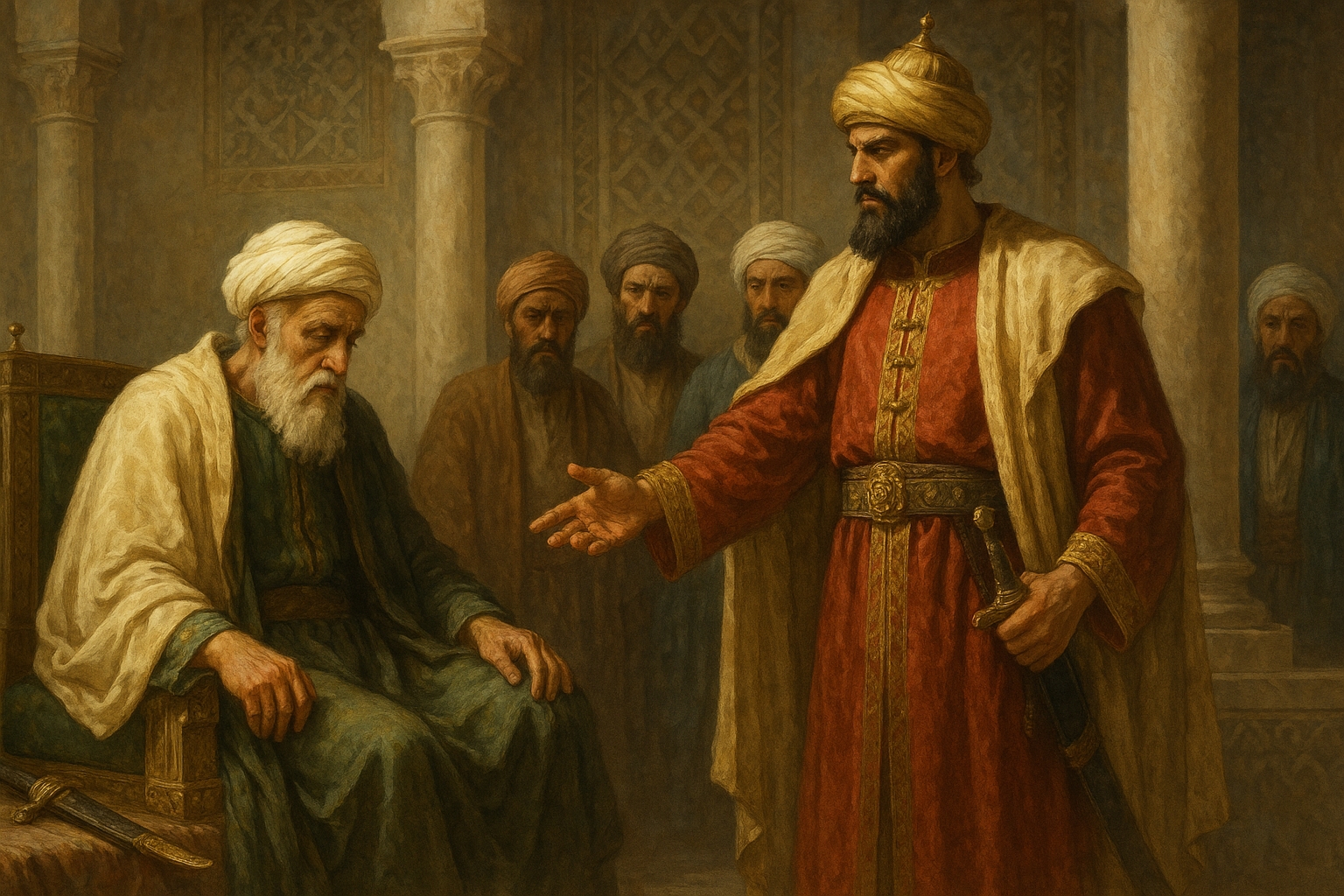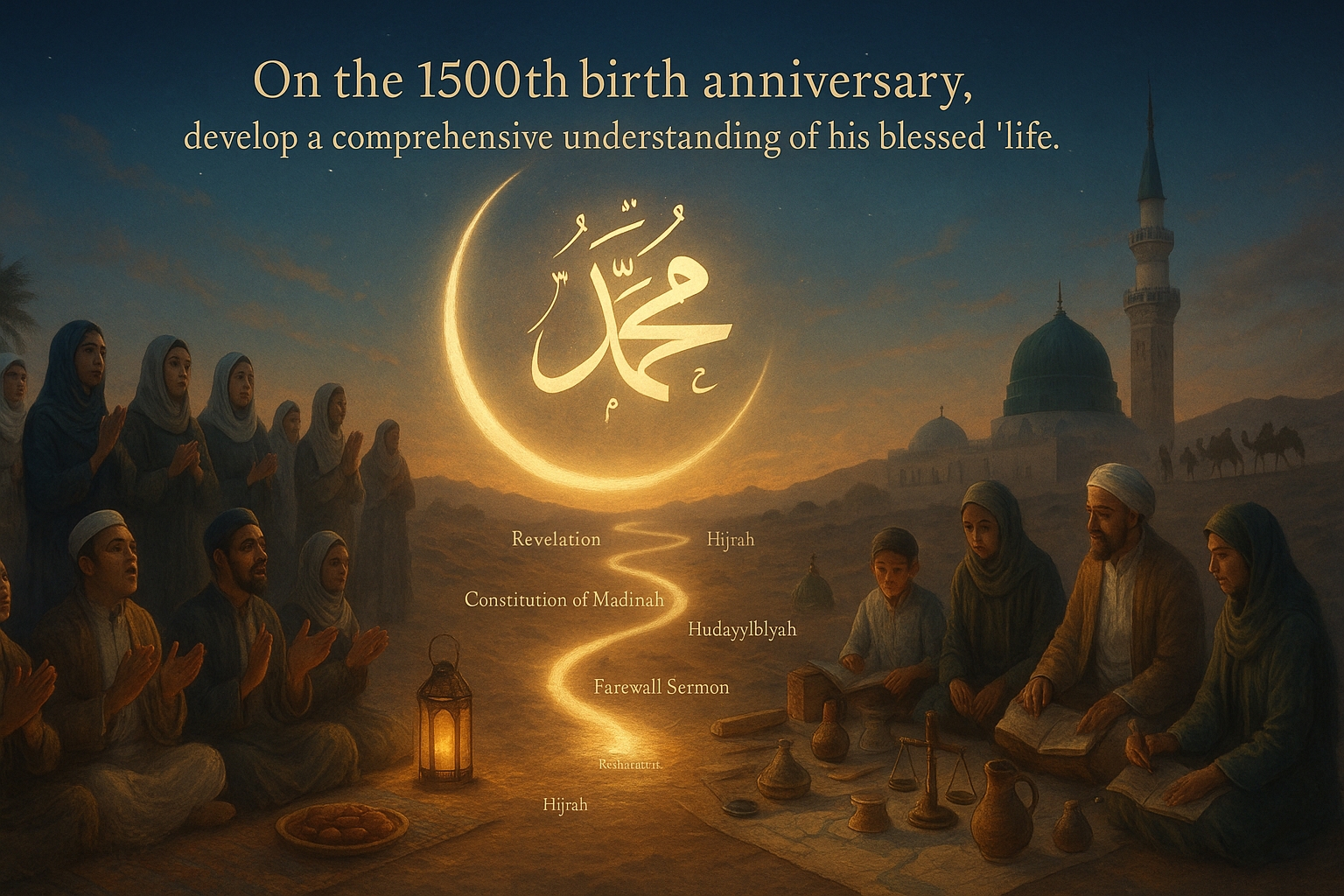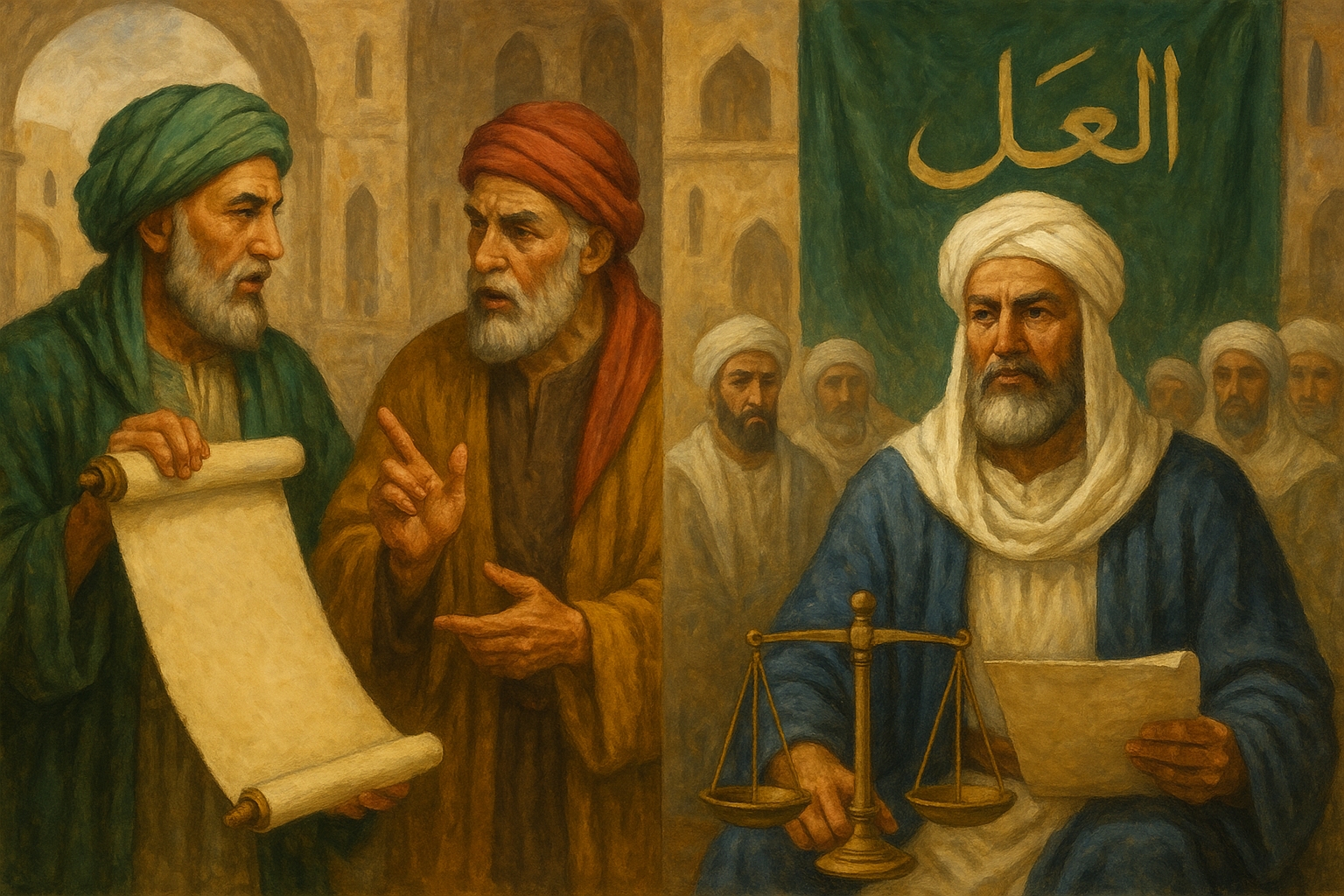



As Muslims prepare to welcome another month of Ramadan, we return to a theme we have frequently highlighted: engaging the noble Qu’ran with meanings so that the Ramadan fast becomes meaningful.
There is much controversy surrounding the character Abdullah ibn Saba’. Lurid tales about his disruptive activities in early Muslim history are narrated in some sources but did he even exist? In this segment, Abu Dharr sheds light on this murky character.
The UAE has a population of 10 million but only one million are locals. Despite its tiny size, it is acting as imperialist lite supporting militias in Sudan, Libya, Yemen and even established military bases on lands it does not own. Its tight embrace of zionist Israel is scandalous.
Opinion among Muslims about the third Khalifah ‘Usman is polarized. One group highlights only his positive aspects while another only his negative policies. Abu Dharr provides a balance approach to present a complete picture.
The existing systems in Muslim countries are foreign-imposed and not designed to serve the interests of the people. The zionist genocide in Gaza proves this point. These systems must be changed, starting with an intellectual revolution in Muslim political thought.
During the twilight years of ‘Uthman’s rule, two prominent figures played a major role in mobilizing public sentiment against the khalifah because of his preferntial treatment of the newly-converted people of Makkah.
In Makkah, the number of Muslims remained relatively small: some 200 people out of a total population of 5,000. Yet they were totally committed. Among them three individuals stand out for their dedication to the Prophet and their sacrifices for Islam.
‘Uthman’s appointment of his relatives caused resentment among the companions of the Prophet (ﷺ). This led to a rebellion instigated by the very kinsmen ‘Uthman had appointed to such positions.
The eroneous impression that after the liberation of Makkah, all of its people suddenly became good Muslims needs to be corrected. The Prophet (ﷺ) referred to them as ‘tulaqa’ (amnestied prisoners), not Sahaba (companions). Muslims should take note.
The manner in which the third Khalifah, Uthman’s family and clan gradually usurped power requires proper understanding. Much of subsequent disasters that struck the early Muslims can be traced directly to their politics and ambitions.
Will Muslims again celebrate the Prophet’s birthday in the traditional way by singing nasheeds and praising his virtues or they will look at his life’s struggle in the broader context? On his 1500th birth anniversary, Muslims must make the effort to develop a comprehensive understanding of his blessed life.
The first two Khulafah—Abu Bakr and Umar—gave Makkans the opportunity to break from their jahili past and join the egalitarian principles of Islam. Unfortunately, Mu‘awiyah exploited this during Uthman’s rule with disastrous consequences for the Ummah.
As the last and final Messenger of Allah, Muhammad’s (ﷺ) mission was not only to inform but also to transform society. For this he needed power which has not received adequate attention. Muslims must study his seerah properly if they want to transform their errant societies today.
The rise of pre-Islamic ‘asabiyah occurred during ‘Uthamn’s rule when he appointed members of his clan and the broader Quraish tribe to important positions. It was not necessarily ‘Uthman’s intent but its consequences were detrimental to the ethos of Islam.
In two months’ time, it will be the 1500th anniversary of the Prophet’s birthday. It is an historic moment and needs to be celerated in a proper manner to derive lessons from the Seerah for the Muslims’ future course of action.
In his continuing series, Abu Dharr highlights how in the latter years of Uthman’s rule, some elite started to acquire riches and their Islamic commitment waned. This did not sit well with the new Muslims who were attracted to Islam because of its emphasis on social justice and equity.
Hajj should be the natural time to discuss the plight of the Palestinian people and find a solution to zionist-perpetrated genocide. Instead, the illegal occupiers of the Haramyn, the Banu Saud, have reduced it to an empty ritual devoid of its original purpose.
In his continuing series of articles on developments in post-Prophetic history, Abu Dharr explains how Uthman’s policy of trying to win over the affluent persons of Makkah resulted, inadvertently, in creating a wealthy class and left behind the committed Muslims.
Tasawwuf (spirituality or Sufism) is an honoured tradition in Islam. By eschewing worldly pleasures, Sufis aim to achieve nearness to Allah. This noble tradition, however, has been subverted and is now being used the US to advance its own nefarious agenda.
The third Khalifah Uthman’s decision to “liberalize” the economy, though well-intentioned, resulted in creating an enterprenuerial class. Its effect on the Muslim society was negative and created schisms whereby there emerged the haves and the have-nots.
